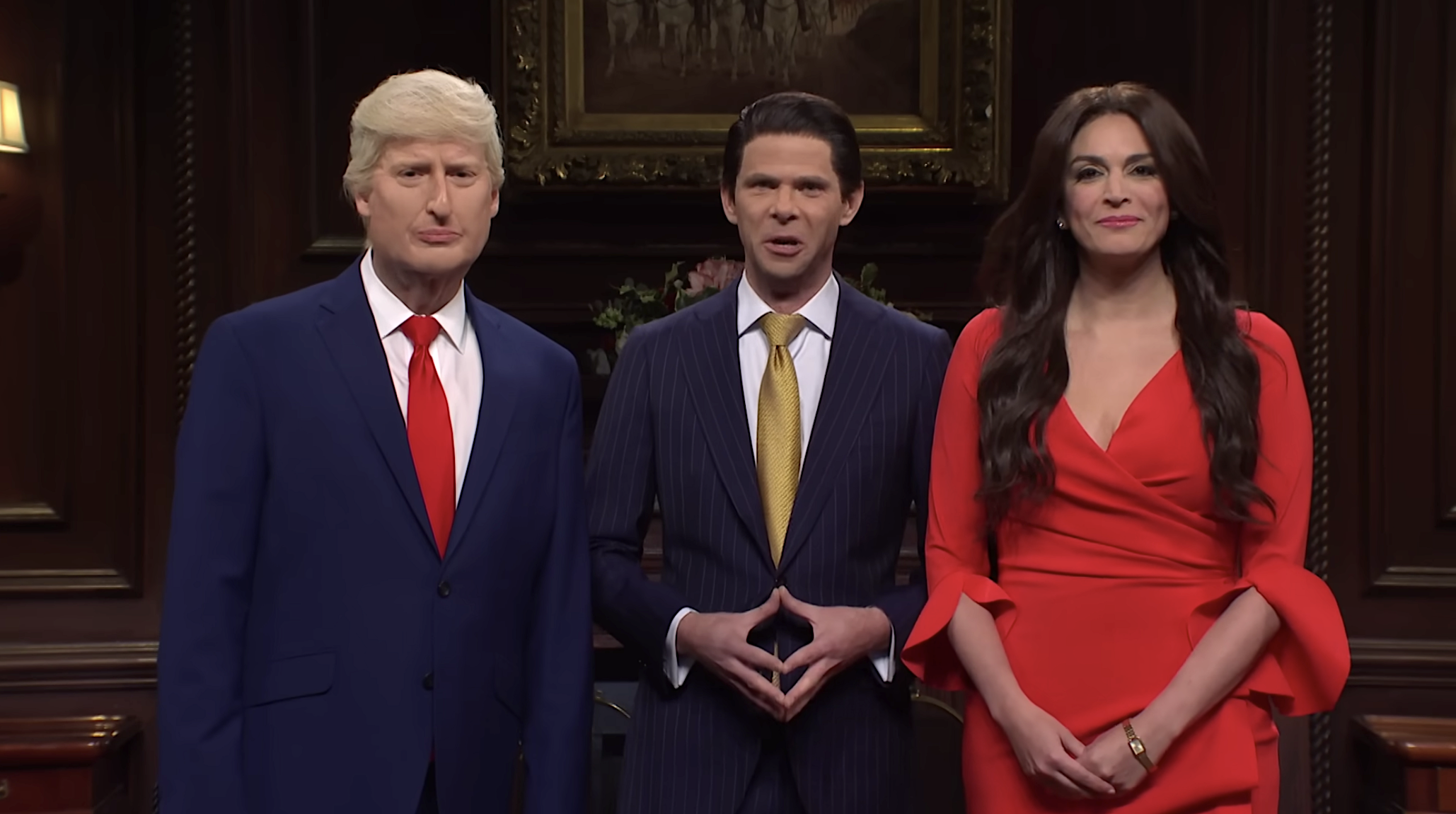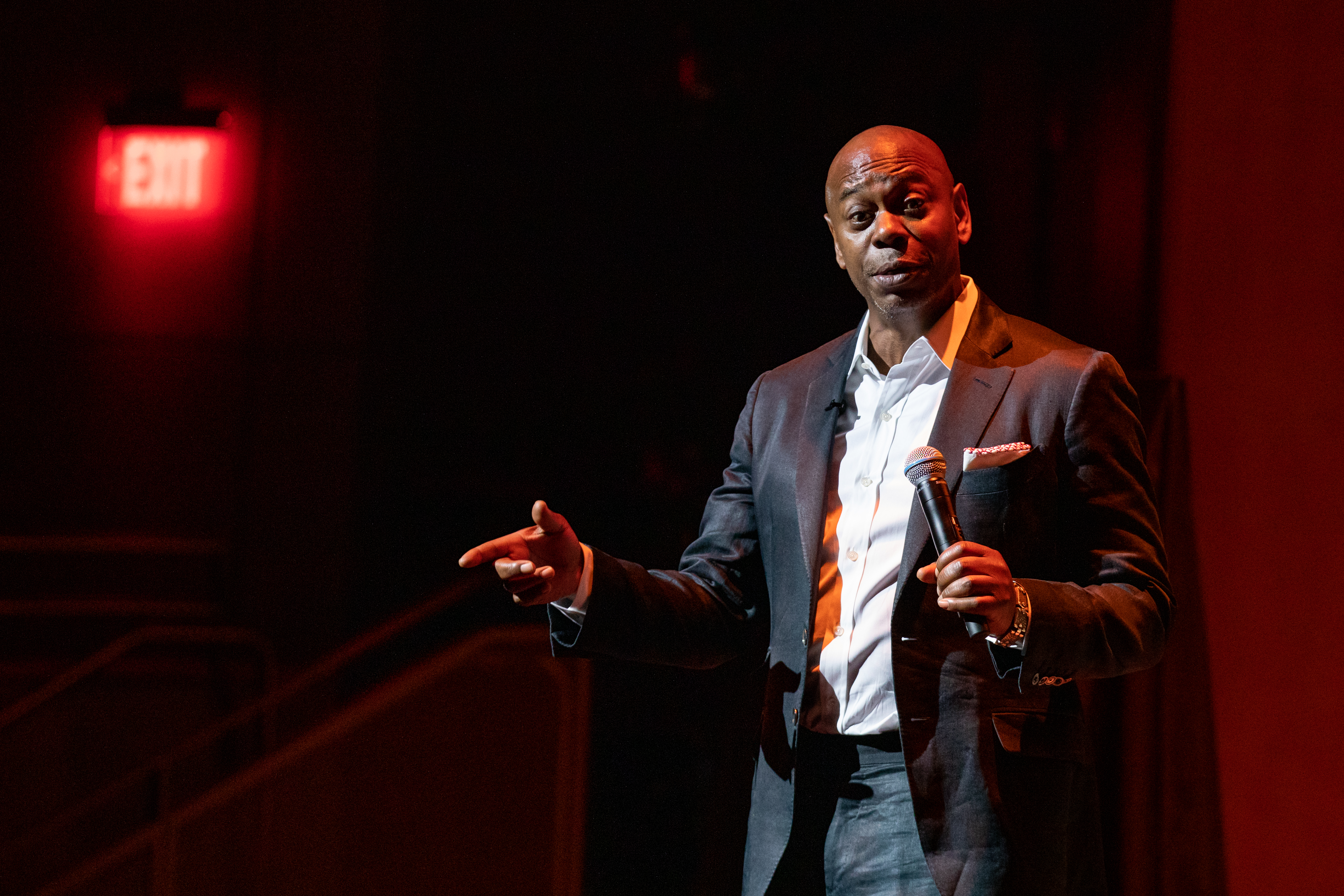Welcome back, Eddie Murphy
The comic genius is back in form in Dolemite Is My Name

A free daily email with the biggest news stories of the day – and the best features from TheWeek.com
You are now subscribed
Your newsletter sign-up was successful
When a 19-year-old Eddie Murphy joined the cast of Saturday Night Live in 1980, the conventional wisdom held that the show's best days were behind it. The original producer Lorne Michaels had just stepped aside, and SNL's first wave of comedy all-stars — Chevy Chase, John Belushi, Gilda Radner, Dan Aykroyd, and Bill Murray — had all graduated to hit movies. Murphy though didn't seem to pay much attention to all the hand-wringing about SNL's legacy. He was too busy establishing his own.
From the start, Murphy took advantage of whatever airtime he could wrangle — which was criminally little, at first — to give Saturday Night Live audiences something they hadn't really seen before. He was loose, smart, and naturally funny even when the writing in a sketch was corny. And he was black, at a time when TV's most popular actors were almost uniformly white. Murphy was so clearly SNL's star attraction that before long, the studio audience would roar just when his name popped up in the opening credits.
In fact, he became a sensation so fast that anyone who wasn't tuning into Saturday Night Live between 1980 and 1984 may not realize now how unexpectedly electrifying he was. Murphy spent the rest of the '80s releasing riotous stand-up specials and making now-classic movie comedies like 48 Hours, Beverly Hills Cop, and Coming to America. But from the '90s onward, he's coasted a bit.
The Week
Escape your echo chamber. Get the facts behind the news, plus analysis from multiple perspectives.

Sign up for The Week's Free Newsletters
From our morning news briefing to a weekly Good News Newsletter, get the best of The Week delivered directly to your inbox.
From our morning news briefing to a weekly Good News Newsletter, get the best of The Week delivered directly to your inbox.
That old Eddie Murphy though — the cultural phenomenon and comic genius — comes storming back in his new movie Dolemite Is My Name, now streaming on Netflix.
Murphy plays the late entertainer Rudy Ray Moore, a notoriously X-rated stand-up comic, who'd been a failed nightclub MC and musician before coming up with the idea to turn the vulgar boasts he heard on street corners into an act. Under the persona "Dolemite," Moore made eccentric B-movies and sold millions of underground comedy albums, inspiring rappers and comedians alike — including Murphy.
Dolemite Is My Name starts in 1970, with Moore developing his new character — a foul-mouthed braggart who speaks in rhyme — and finding receptive audiences across the U.S. in small clubs in black neighborhoods. Determined to extend his reach, Moore gets into the "blaxploitation" business, making a movie that's like a clumsier and funnier version of Shaft and Superfly.
The second half of Dolemite Is My Name details the hilariously calamitous making of that movie: 1975's now cult-favorite Dolemite. Moore fills the crew with college students, unprepared for shooting in a crumbling abandoned hotel in one of Los Angeles' most drug-ridden neighborhoods. His director, D'Urville Martin (played by Wesley Snipes), is a pompous drunk. The production burns through so much money that Moore has to sell off the rights to everything he's ever made to finish the picture. And then, once the production wraps, no distributor wants to buy the thing.
A free daily email with the biggest news stories of the day – and the best features from TheWeek.com
Dolemite Is My Name features Murphy's best performance in 20 years — since the oddball 1999 Hollywood satire Bowfinger. The film feels like it matters to Murphy. He's a co-producer on the project, and reportedly had a hand in hiring the director Craig Brewer, best-known for the Oscar-winning Hustle & Flow (and currently back at work with Murphy on a sequel to Coming to America), as well as screenwriters Scott Alexander and Larry Karaszewski, best-known for penning Ed Wood (another entertaining picture about a showbiz outsider).
The movie works even though, for the most part, Moore's story is not Murphy's. Moore toiled in obscurity until he was in his 40s, then finally made it big after grinding through the club circuit, slowly building a fan base. What makes Dolemite Is My Name so surprisingly moving is that it shows Moore assembling a makeshift family around himself, supporting his own band of misfits and castoffs.
Murphy, by contrast, spent a couple of years telling jokes and raunchy stories in New York nightclubs before he was old enough to drink, and then he talked his way onto Saturday Night Live. He was a superstar in his early 20s. He didn't surround himself with simpatico colleagues. He had an entourage.
One reason why Murphy's movies lost some spark after the '80s was that his underdog edge dulled once he became mega-popular. Bowfinger and The Nutty Professor are the major exceptions from the '90s; but both those films are as great as they are perhaps because the star felt he had something to prove. In both, he wrestled with material originated by comedians he admired: Steve Martin and Jerry Lewis.
With Dolemite Is My Name, Murphy seems similarly charged to do justice to one of his heroes. He and his co-producers have assembled a cast that's like a who's-who of great black character actors and comedians: Snipes, who looks to be having a ball playing the persnickety Martin; Broadway star Da'Vine Joy Randolph as "Lady Reed," a comedian and singer Moore discovered in his touring days; Keegan-Michael Key as Dolemite's screenwriter; and key supporting and cameo roles for Mike Epps, Craig Robinson, Titus Burgess, Chris Rock, Ron Cephas Jones, and Snoop Dogg.
The cast itself makes a statement. At the core of Dolemite Is My Name is Moore's conviction that he'd created a character — and indeed an entire comic universe — with commercial appeal. Again and again, he was shut down by showbiz gatekeepers who told him that, while his shtick may sell, it would only ever be popular in a few city blocks. But Moore persisted, operating under the theory that every city has those same few blocks. He could make money even if no white person ever bought a ticket.
During his Saturday Night Live days, Murphy was — as comedian and fellow SNL alum Tracy Morgan later put it — "the blackest thing on TV." At a time when the African-American experience on television was increasingly reduced to whatever seemed "uplifting," Murphy leaned into racist stereotypes, exploding them and exploiting them. He anchored hilariously raw sketches about poverty and crime, and about the compromises involved with being a black entertainer. He was a Richard Pryor in a Bill Cosby decade. And for a few years there he was on TV every week.
Don't misunderstand: Those Saturday Night Live sketches weren't all golden, any more than Moore's comedy albums and movies were flawless masterpieces. But they had a refreshing incautiousness, and a confidence that the right people would find them funny. This is what Dolemite Is My Name brings back: that sense of an entertainer cutting loose beyond the bounds of what was considered acceptable at the time, and the sense of discovery in an audience delighted that he was getting away with it.
Want more essential commentary and analysis like this delivered straight to your inbox? Sign up for The Week's "Today's best articles" newsletter here.
Noel Murray is a freelance writer, living in Arkansas with his wife and two kids. He was one of the co-founders of the late, lamented movie/culture website The Dissolve, and his articles about film, TV, music, and comics currently appear regularly in The A.V. Club, Rolling Stone, Vulture, The Los Angeles Times, and The New York Times.
-
 ‘Restaurateurs have become millionaires’
‘Restaurateurs have become millionaires’Instant Opinion Opinion, comment and editorials of the day
-
 Earth is rapidly approaching a ‘hothouse’ trajectory of warming
Earth is rapidly approaching a ‘hothouse’ trajectory of warmingThe explainer It may become impossible to fix
-
 Health insurance: Premiums soar as ACA subsidies end
Health insurance: Premiums soar as ACA subsidies endFeature 1.4 million people have dropped coverage
-
 Movies to watch in October, from 'Joker: Folie à Deux' to 'Saturday Night'
Movies to watch in October, from 'Joker: Folie à Deux' to 'Saturday Night'The Week Recommends Joaquin Phoenix as Joker, a new Jason Reitman comedy and a buzzy Palme d'Or winner
-
 The remarkable comedy of Julio Torres
The remarkable comedy of Julio TorresThe Explainer His latest endeavor, "Problemista," continues his peerless artistic run
-
 When will your favorite show be back now that the writers strike is over?
When will your favorite show be back now that the writers strike is over?The Explainer Here's when to expect new episodes of the late-night shows, 'SNL,' and more
-
 The story behind Sinéad O’Connor’s iconic Saturday Night Live performance
The story behind Sinéad O’Connor’s iconic Saturday Night Live performanceUnder the Radar Singer ‘stepped into culture-war infamy’ after tearing photograph of the Pope live on air
-
 SNL's Donald Trump compares himself to Jesus, favorably, in special Easter cold open
SNL's Donald Trump compares himself to Jesus, favorably, in special Easter cold openSpeed Read
-
 A history of presidential parodies on Saturday Night Live
A history of presidential parodies on Saturday Night LiveSpeed Read From Gerald Ford to Joe Biden and everyone in between
-
 SNL mocks Trump's NFT trading cards 'scam,' says goodbye to Cecily Strong
SNL mocks Trump's NFT trading cards 'scam,' says goodbye to Cecily StrongSpeed Read
-
 SNL criticized for Dave Chappelle's monologue on antisemitism, Kanye West
SNL criticized for Dave Chappelle's monologue on antisemitism, Kanye WestSpeed Read
